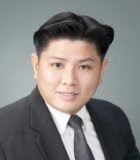MEMBERS of Singapore’s government are notorious sticklers for legal exactitude. So it has been interesting to watch the reaction after the country’s elder statesman, Lee Kuan Yew—a British-trained lawyer before he became a politician—gave inaccurate testimony in the trial of two opposition leaders.
In May Mr Lee testified in a hearing to decide damages against Chee Soon Juan, the leader of the Singapore Democratic Party (SDP), and his sister, Chee Siok Chin, for defaming the former prime minister and his son, Lee Hsien Loong, who is now prime minister himself. Mr Lee senior claimed that after the London-based International Bar Association (IBA) held its annual conference in Singapore last October, its president sent a letter to the Law Society of Singapore praising the country’s justice system. It has since emerged that there was no such laudatory letter.
Mr Chee (who along with his sister was briefly jailed for contempt for accusing the judge in his case of bias) tried unsuccessfully to have the hearing reconvened in the light of Mr Lee’s incorrect testimony. Mr Lee’s counsel, Davinder Singh, wrote to the court on July 9th admitting that his client was wrong about the letter but noting that the IBA’s president, Fernando Pombo, had praised Singapore’s “outstanding judiciary” in a speech at the start of the conference. Mr Singh argues that what matters is that the IBA did praise Singaporean justice, not whether it did so in a speech or a letter. Mr Chee says there is a difference: the speech was made before the conference, where criticisms of the justice system were aired. Mr Lee was claiming, in effect, that the IBA was still impressed after this.
By coincidence, on July 9th the IBA’s Human Rights Institute issued a report criticising the use of defamation suits by the ruling People’s Action Party (PAP) to silence the opposition and the press, and expressing concerns about the independence and impartiality of Singapore’s judges. The law ministry has rejected the IBA’s report, pointing out that Singapore’s legal system has won excellent ratings in other international surveys. Indeed, in cases not involving the country’s leaders, there is no dispute about its quality. As for the IBA’s worries about cases involving PAP figures, the law ministry claims that the IBA failed to substantiate its “grave” allegations with evidence, though its report does discuss several worrying cases.
America’s State Department, which is in rather less danger of being sued by the PAP than are the opposition or newspapers, has expressed concern about judicial independence in political cases in Singapore. In its latest human-rights report, in March, the department noted that the PAP’s consistent success in defamation suits against critics “led to a perception that the judiciary reflected the views of the ruling party in politically sensitive cases.”
According to the Straits Times newspaper, Mr Lee on July 11th accused human-rights organisations of “a conspiracy to do us in”. He said that they saw that Russia and China had been studying Singapore’s success, and hence regarded it as a threat. Mr Lee and the government argue that doing things their way has made Singapore prosperous, orderly and corruption-free, and has earned international respect. The threat of defamation proceedings may make opposition politicians weigh their words more carefully than they do elsewhere. But Singaporean voters continue to buy the PAP’s argument that such constraints are a price worth paying—so far.
Source: Economist.com
http://www.economist.com/world/asia/displaystory.cfm?story_id=11751390
Regards,
Edmund Ng
CEO, President
www.Internet-Empire.com
Friday, July 18, 2008
blog comments powered by Disqus
Subscribe to:
Post Comments (Atom)


